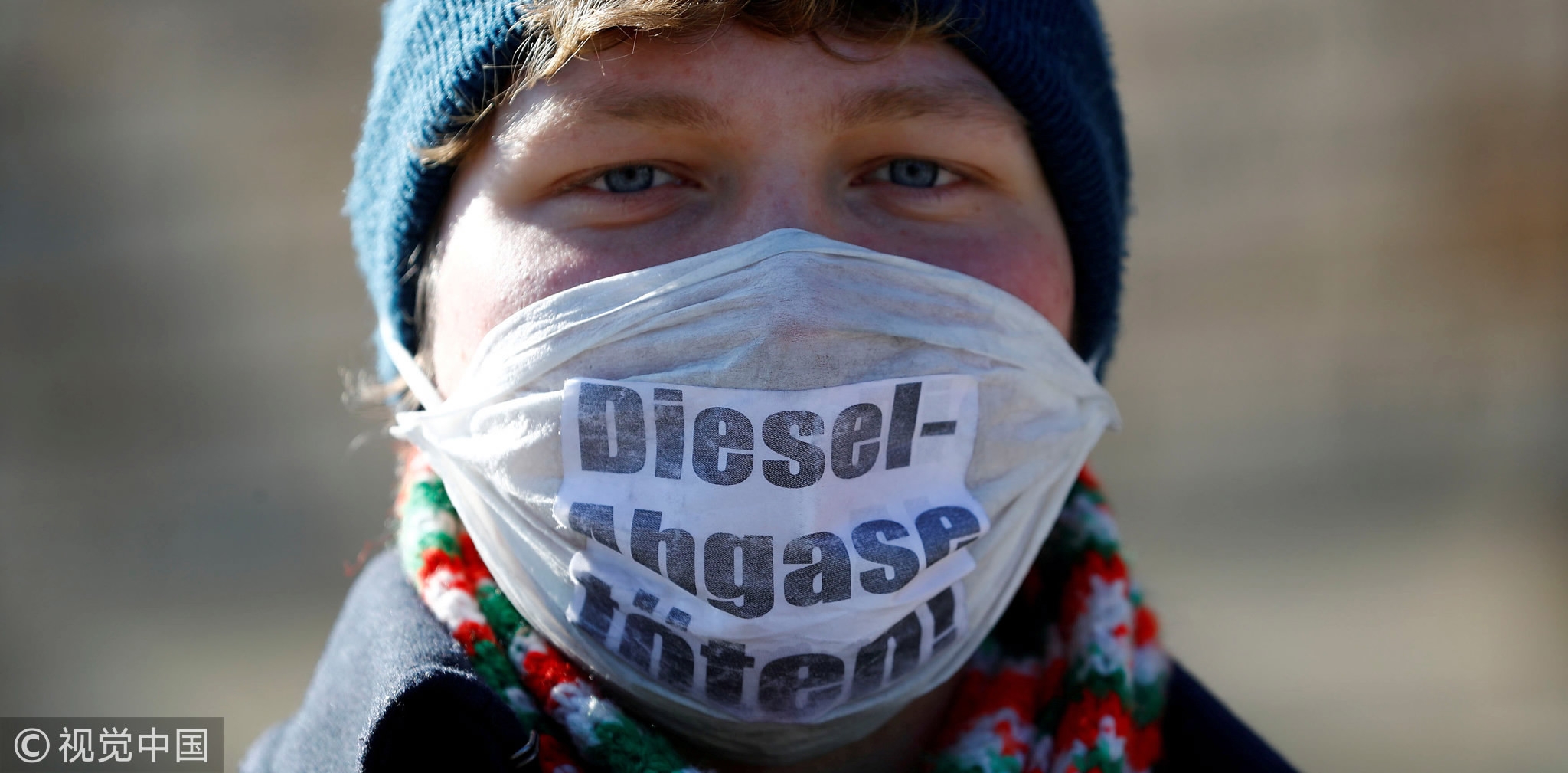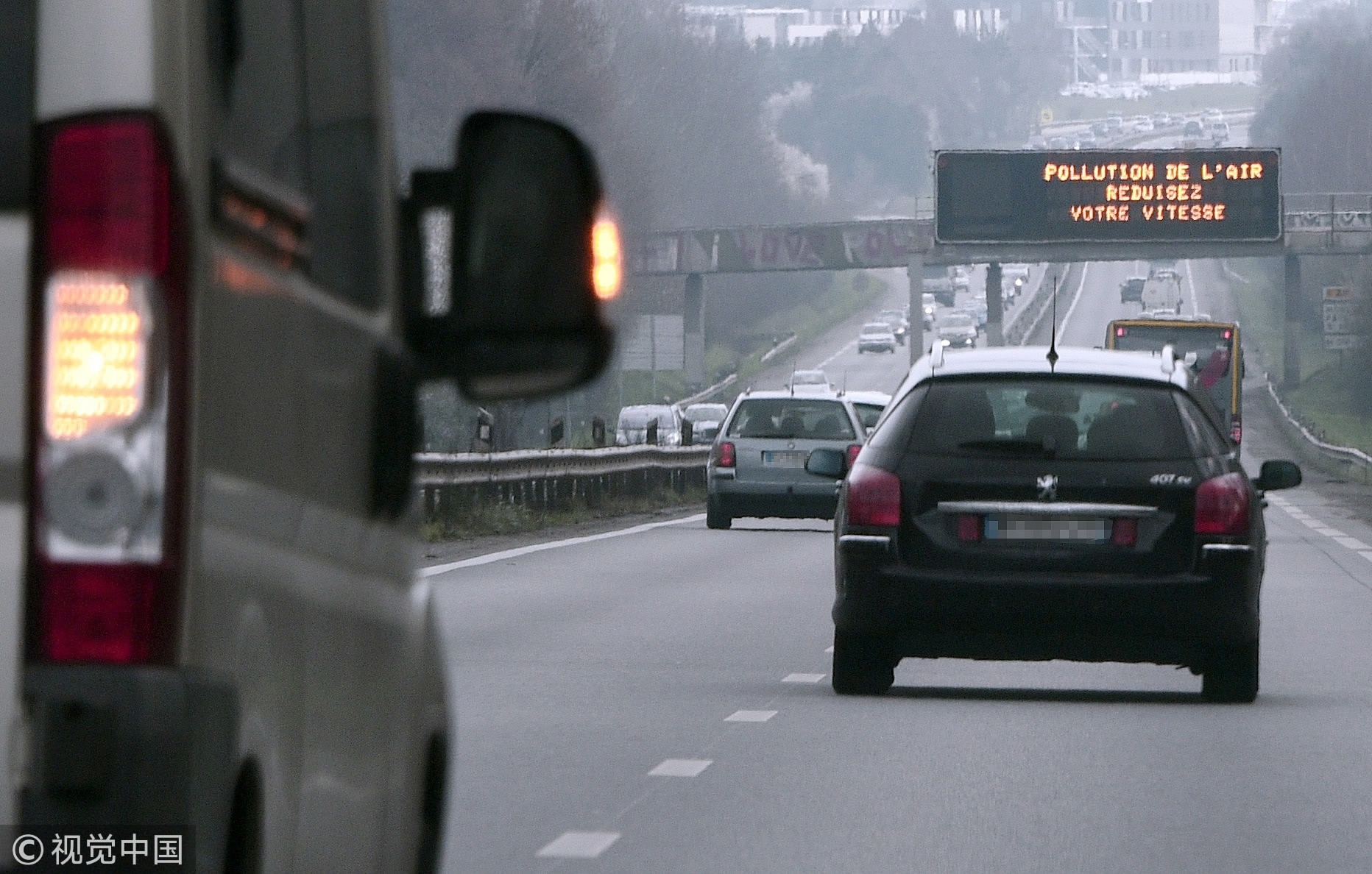
Tech & Sci
14:26, 28-Feb-2018
Policy gaps stirs legal action to curb EU's toxic bloc air pollution
Alok Gupta

The inadequate policies of the European Union’s (EU) “toxic bloc” to curb air pollution are forcing courts to tackle the issue with strict rulings.
Rising vehicular, industrial and unsustainable fuel use in the Czech Republic, Germany, Spain, France, Italy, Hungary, Romania, Slovakia and the United Kingdom has been facing the ire of the EU Commission for over two years.
Court verdicts helping Germany, the UK, Poland, Bulgaria to curb pollutants
A German court ruling on Tuesday empowering cities to ban diesel vehicles is not only seen as a victory for environmental groups but also strengthening the commission’s efforts to enforce air quality norms.
Activists from Deutsche Umwelthilfe (DUH) and ClientEarth have sued nineteen European cities this year in a bid to enforce clean air regulations.
The court’s decision is likely to affect 15 million diesel vehicles owners, out of which only 2.5 million adhere to the Euro VI emission standard. Diesel-powered vehicles in Stuttgart and Düsseldorf cities had nitrogen dioxide pollution spike by 70 percent, leading to choking air.

An environmental activist protests in front of Germany's federal administrative court, Tuesday. /VCG Photo
An environmental activist protests in front of Germany's federal administrative court, Tuesday. /VCG Photo
“Legal action on dirty air is taking place all over Europe, and this stunning ruling is likely to make waves in all countries struggling with illegal levels of nitrogen dioxide,” ClientEarth CEO James Thornton said after the German court decision.
The legal victory in Germany is not the only one for the activists. Last week, in a ruling handed down at the High Court in London, Justice Garnham declared unlawful the government’s failure to require action from 45 local authorities with illegal levels of air pollution in their area.
“For the third time in the space of three years, the courts have declared that the government is failing in its obligation to clean up the air in our towns and cities,” said the group's lawyer Anna Heslop.
Even the EU Commission, tired of giving repeated warnings, has taken legal route to ensure ambient air quality
The "toxic bloc’s" inability to limit emissions was inadequate to the extent that the commission summoned environment ministers to present their proposals to limit the air pollution on Jan. 30.

March 21, 2015: Motorists drive under a traffic board reading "Air pollution, slow down" near Rennes, western France. /VCG Photo
March 21, 2015: Motorists drive under a traffic board reading "Air pollution, slow down" near Rennes, western France. /VCG Photo
Furious over the absence of a concrete plan to tackle the issue, EU’s environment commissioner Karmenu Vella, in a statement, maintained that at first sight, these were not substantial enough [proposals] to change the big picture.
“The deadlines for meeting the legal obligations have long elapsed. And some say we have waited already too long. But we can delay no more,” he maintained at the conclusion of the meeting. The EU has already taken Poland and Bulgaria to court.
In April last year, the court ordered Bulgaria take action to improve its air quality. On Feb. 22, EU’s top court ruled Poland has “persistently exceeded” emissions.
Environmentalists have been recommending phasing out fossil fuels, especially for such applications as diesel-powered vehicles. In 2016, Athens, Madrid, Mexico City and Paris announced the ending of the sale of diesel vehicles by the middle of the next decade and provide incentives for people to switch to cleaner transport.
Amidst EU countries’ widespread flouting of measures to limit air pollution, Brussels announced on Monday to make public transport free on bad air days.
“Research shows that the more space you give to cars, the more cars you attract. Indeed, the most car-friendly cities are also the most congested,” Pascal Smet, Brussels’s mobility minister told the Guardian.

SITEMAP
Copyright © 2018 CGTN. Beijing ICP prepared NO.16065310-3
Copyright © 2018 CGTN. Beijing ICP prepared NO.16065310-3